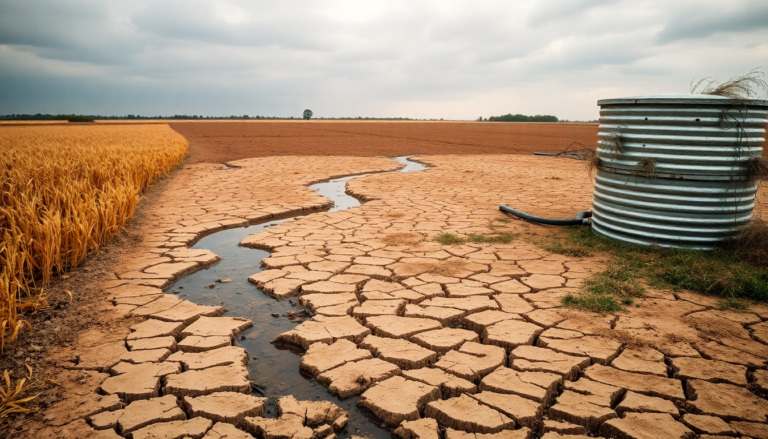Argomenti trattati
Recently, England has found itself grappling with a severe water shortage, an alarming situation that has been officially labeled a ‘nationally significant incident.’ This has prompted government officials to issue recommendations urging citizens to conserve water. But let’s face it—some of these suggestions seem a bit impractical or even counterproductive. In this article, we’ll take a closer look at the current water crisis in England, scrutinize the government’s guidance, and explore more effective alternatives for water conservation.
The Current State of Water Shortage in England
The UK government has declared a water shortage in five regions, with an additional six areas experiencing prolonged dry conditions. This follows a record-breaking dry spell—the last six months have been the driest since 1976. The implications of this shortage are serious, as river levels and reservoirs continue to dwindle. And, looking ahead to August, forecasts don’t promise much rain, which is raising concerns for both residents and local authorities.
As the situation worsens, the government is actively seeking ways to curb water consumption. Their suggestions range from practical measures like collecting rainwater and fixing leaks to reducing shower times and limiting lawn watering. However, some advice—such as deleting old emails and pictures—has raised eyebrows among experts. It seems rather misguided, as the link between managing personal data and conserving water is, at best, a stretch.
Analyzing the Government’s Recommendations
The government’s guidance encourages citizens to take action to reduce water usage. However, some of the proposed measures feel somewhat superficial. For instance, deleting emails and photos is unlikely to make a dent in overall water consumption. Data centers do use a significant amount of water for cooling, but they primarily rely on heavy computational activity, not the storage of personal files. Thus, deleting a few files is unlikely to change water usage patterns in any meaningful way.
This suggestion has sparked debate about its practicality, especially when set against the government’s push to advance AI technologies, which inherently consume substantial water resources for their operations. Ironically, the energy and water required to delete those files might actually outweigh any resources saved from doing so. Instead, individuals should focus on more impactful conservation strategies that contribute to the national effort.
Effective Water Conservation Strategies
To truly understand the nuances of the water shortage crisis, we need to shift our focus toward practical and effective conservation strategies. While the government’s advice may come from a good place, individuals should prioritize actions that yield real results. For example, collecting rainwater is a fantastic way to save resources while ensuring that gardens and plants stay hydrated. Additionally, repairing leaks in plumbing systems not only conserves water but can also lead to significant savings on utility bills.
Moreover, reducing shower times and avoiding excessive lawn watering can greatly impact daily water usage. Encouraging community efforts—like local initiatives that promote water-saving habits—can also foster a sense of collective responsibility. By focusing on these realistic approaches, individuals can make a meaningful contribution to alleviating the water crisis.
Looking Ahead: Future Predictions and Considerations
As England navigates this water shortage, keeping a close eye on the situation and anticipating future developments is crucial. With ongoing climate challenges, the likelihood of similar incidents may increase, highlighting the need for robust water management strategies. The government and local authorities must continue to educate the public about effective conservation measures, ensuring that communities are well-prepared for potential future shortages.
In conclusion, while the current water crisis in England poses significant challenges, there are constructive ways for individuals to contribute to conservation efforts. By prioritizing practical actions over superficial recommendations, citizens can play a vital role in addressing this pressing issue. Moving forward, collaboration, awareness, and a commitment to sustainable practices will be essential for the benefit of both the environment and the population at large.

